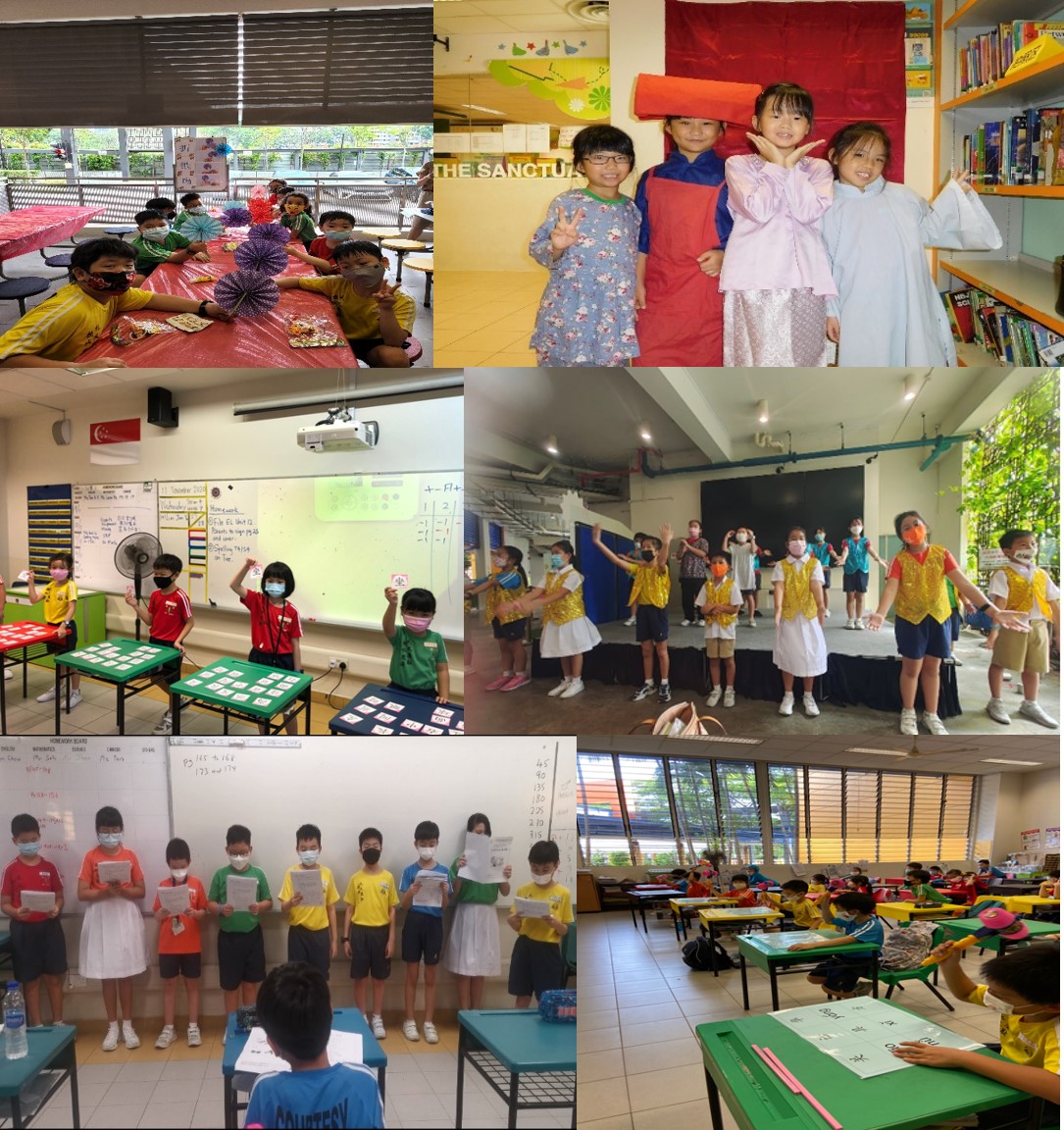华文 Chinese
| English | Chinese |
Curriculum Objectives:
- To develop language skills (listening, speaking, reading, writing, spoken and written interaction skills)
- To develop civic literacy and cultural awareness (values, Chinese culture, social knowledge, care and global awareness)
- To develop general competencies (cognitive, self-directedness in learning, socio-emotional learning, media technological literacy and cross-cultural communication)
The Primary School Chinese Curriculum comprises the Foundation Stage (Primary 1 to 4) and the Orientation Stage (Primary 5 to 6).

Apart from the language skills, civic literacy and cultural awareness are incorporated into the curriculum. This includes lessons on the Chinese History, cultural knowledge and moral values. At the Upper Primary levels, students learn at their own pace based on the reading materials introduced to enhance their reading skills. With the foundation laid in the Lower Primary levels, writing skills are further developed.
Teaching and Learning
To develop general competencies (cognitive, self-directedness in learning, socio-emotional learning, media technological literacy and cross-cultural communication), the Chinese Department adopts “flip” teaching and ICT based teaching as the two main pedagogical approach, with the aim to develop the students to learn independently, think and express themselves clearly and fluently.
iRead Programme is introduced as a school-wide programme to cultivate students’ reading habits. To further encourage students to read, “Sensory Experience of Chinese Reading” has been annually organised since 2018 to facilitate students’ understanding and experience of the various educational themes through the books and articles on display. Thrice a week, the pre-assembly programmes are conducted to facilitate the learning of the Chinese Language and culture in engaging ways as well as to instil traditional values. School-based Learning Packages (e.g. Oral Skills, Reading skills and History lessons) are developed based on the learning needs of the students. “Speaking in Mandarin” programme provides the students with the opportunity to appreciate the language usage in different regions.
Assessment
Students are assessed holistically through the formative and summative assessments. The latter is the weighted assessments and semestral examination that the students go through on a termly basis. Formative Assessments are implemented in the different levels to assess students’ language skills over a period of time under the teachers’ guidance. The types of Formative Assessment could be in the form of task-based assignments or the assessment of language components (oral, listening, reading and writing skills).
Learning Experiences Beyond the Classroom


